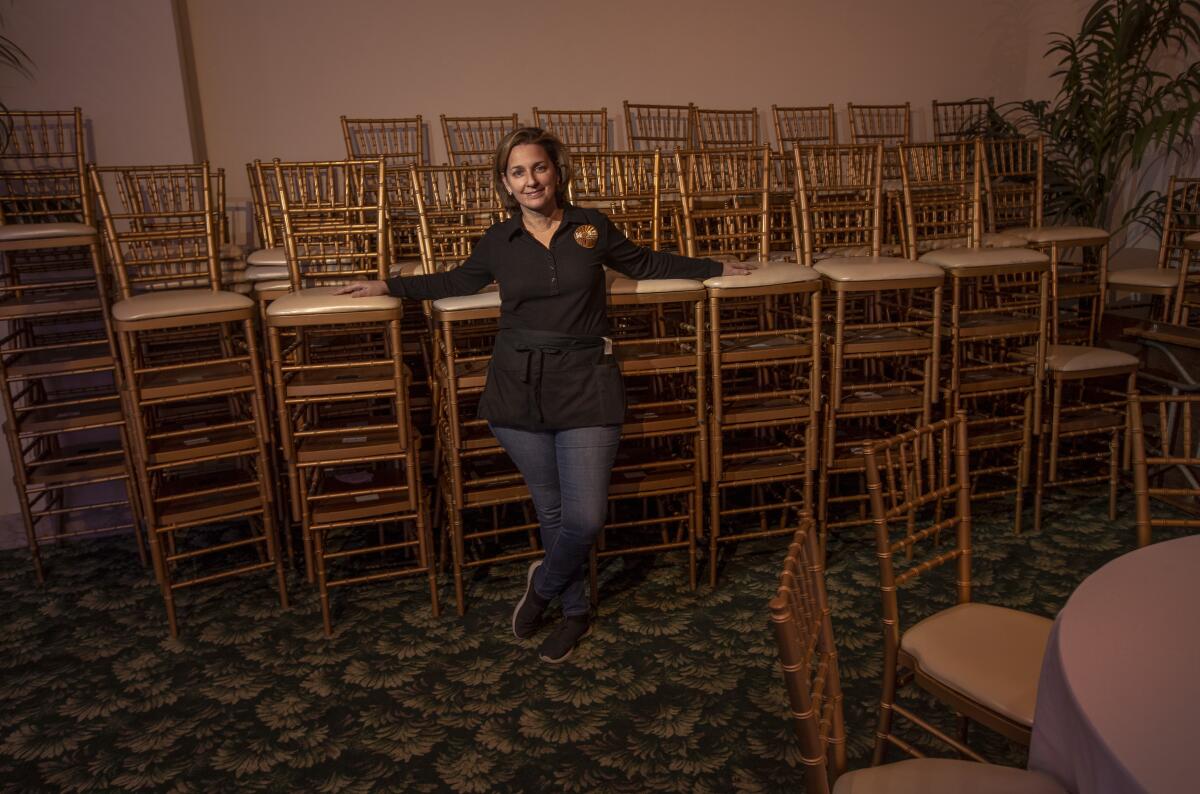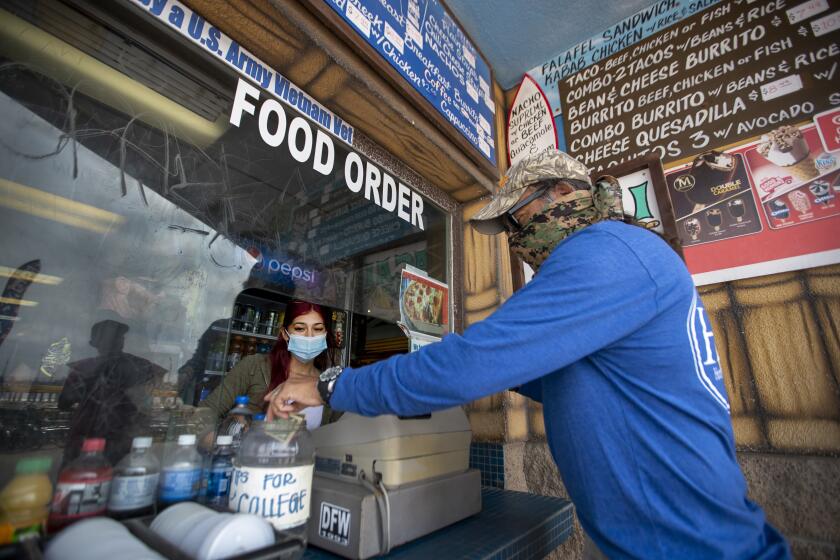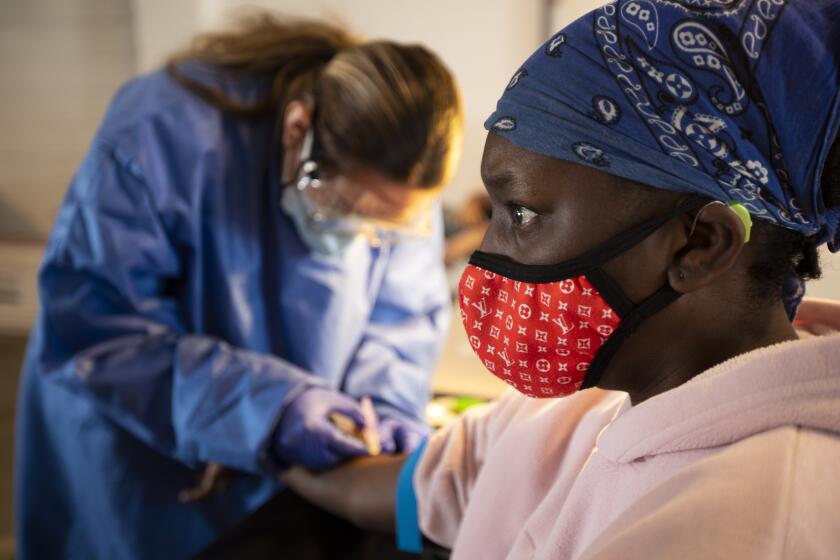When virus assistance program ends, there’s a good chance this Pasadena restaurant will too

- Share via
After barely hanging in for months amid a multitude of pandemic-related challenges thrown at restaurants, the husband-and-wife team behind Hope Cafe & Catering in Old Town Pasadena might throw in the towel.
Pasadena city officials announced this week that they would be winding down a restaurant assistance program, called Great Plates Deliver, given strained local financial resources. It is set to run until early February.
For the record:
11:41 a.m. Nov. 12, 2020An earlier version of this article said Pasadena Mayor-elect Victor Gordo intended to write to L.A. County officials regarding the assistance program. Mayor Terry Tornek plans to write that letter.
The program “is literally the only thing keeping us afloat,” said Ann Lancaster, who owns Hope along with her husband, Tony. The couple launched their restaurant and catering business about nine years ago and said they’d never faced an existential crisis like this.
Other cities and counties are also eyeing an end date for the statewide program, even as coronavirus restrictions continue to hamper restaurant businesses across California. Orange County’s program, which is at capacity, is slated to end at the end of this month.
Launched by Gov. Gavin Newsom in April, the program pays restaurants to deliver meals to needy seniors, with the intent of helping those most vulnerable to the coronavirus while providing stimulus to struggling businesses.
State and federal agencies are supposed to fund the majority of the program, but Pasadena city staff said they weren’t sure when that money would arrive. So far, the city has shelled out nearly $2.3 million — which equates to $466,000 a month — to keep the program running.
Two customers on the outdoor patio. $6 in a tip jar labeled ‘For College’. Few masks in sight. This is the reality of Huntington Beach service workers during the pandemic.
About 235 seniors in Pasadena depend on the program, along with 21 restaurants, according to a city report prepared by Brenda Harvey-Williams, Pasadena’s director of community services.
Although Pasadena’s seniors can be transferred to Los Angeles County’s version of the program, it’s uncertain if the restaurants can follow suit, Harvey-Williams said at a City Council meeting on Monday, noting that there’s a waiting list for restaurants wanting to join the county’s program.
Pasadena Mayor Terry Tornek intends to write a letter to county officials urging them to take on the restaurants as well, said Lisa Derderian, a spokesperson for the city.
“That’s a big part of keeping this program going,” Derderian said, “not just for our vulnerable population, which is a priority, but also keeping our doors open for restaurants that would otherwise not be able to sustain.”
County officials did not immediately reply to a request for comment.
Besides the businesses themselves, there’s restaurant staff to think about. Since the Great Plates program was introduced, the 21 participating restaurants hired back 110 employees, according to the Pasadena report.
Without a clear answer on what’s next, some restaurants see a lifeline in limbo.
As the name of the Lancasters’ catering business, Hope stands for “help one person every day,” a pre-recorded voice says on their order line. But hope, the feeling, is starting to wear thin.
“This could be the last straw,” Lancaster said of potentially losing the support of the program.
Last year was a good one, business-wise, she said. The pandemic has undone that, wiping out 85% of their catering business and forcing the closure of a downtown Los Angeles space they ran inside a municipal building.
In the unprecedented regression, San Diego County is among those that slide backward in the state’s reopening tiers Tuesday.
To keep going, the Lancasters pivoted, adjusted — and readjusted.
With large events out of the question, they focused on catering office lunches. Losing the option of indoor dining, the duo began offering patio dining closer to their main kitchen. When the weather started to cool, they lugged out heat lamps to lure back cold-averse Californians.
Despite the maneuvering, “we’re not even covering our expenses,” Lancaster said.
More to Read
Sign up for Essential California
The most important California stories and recommendations in your inbox every morning.
You may occasionally receive promotional content from the Los Angeles Times.













